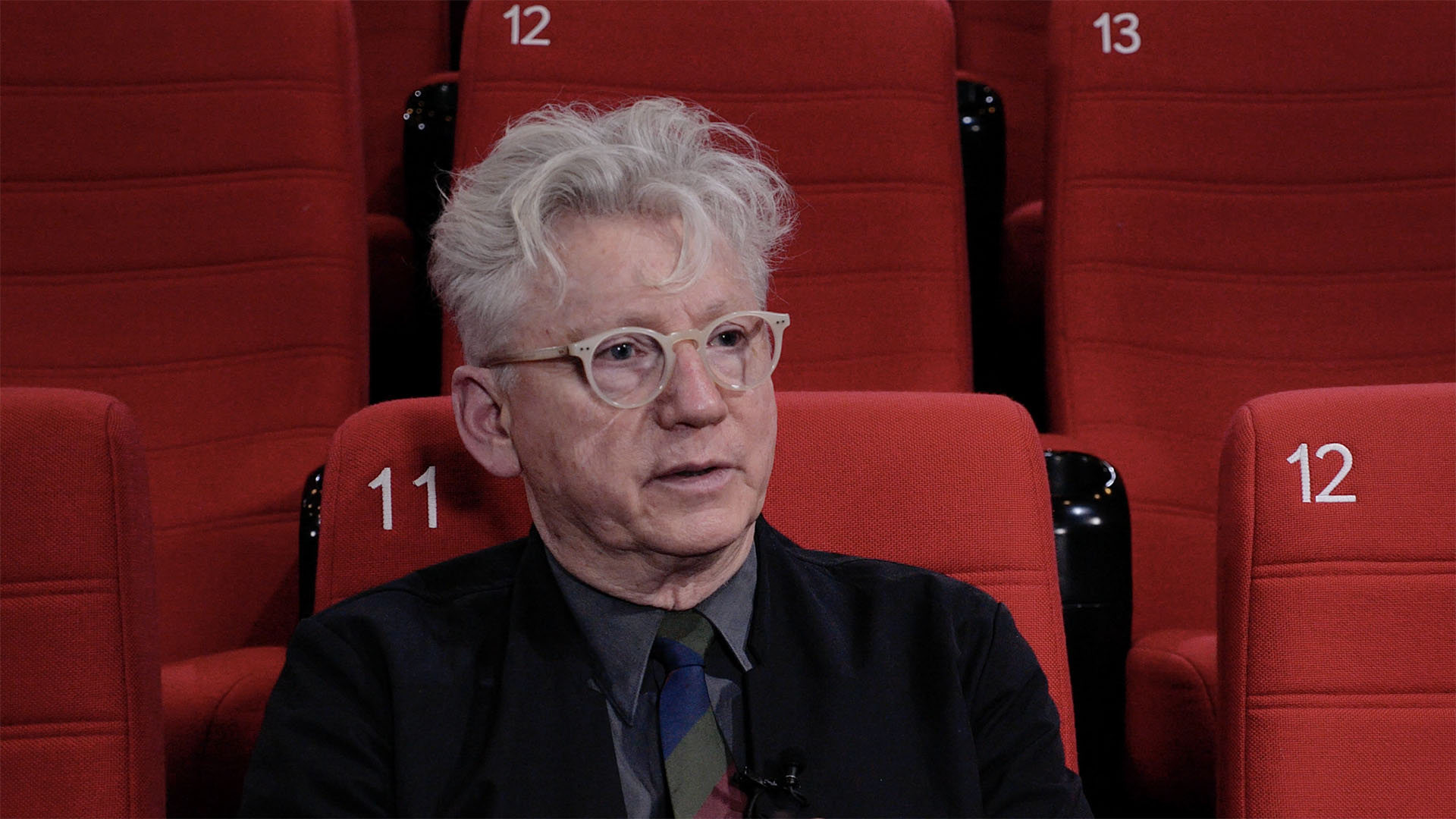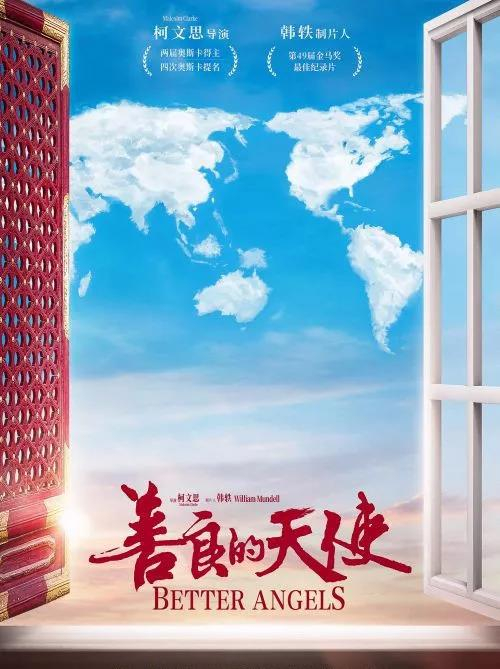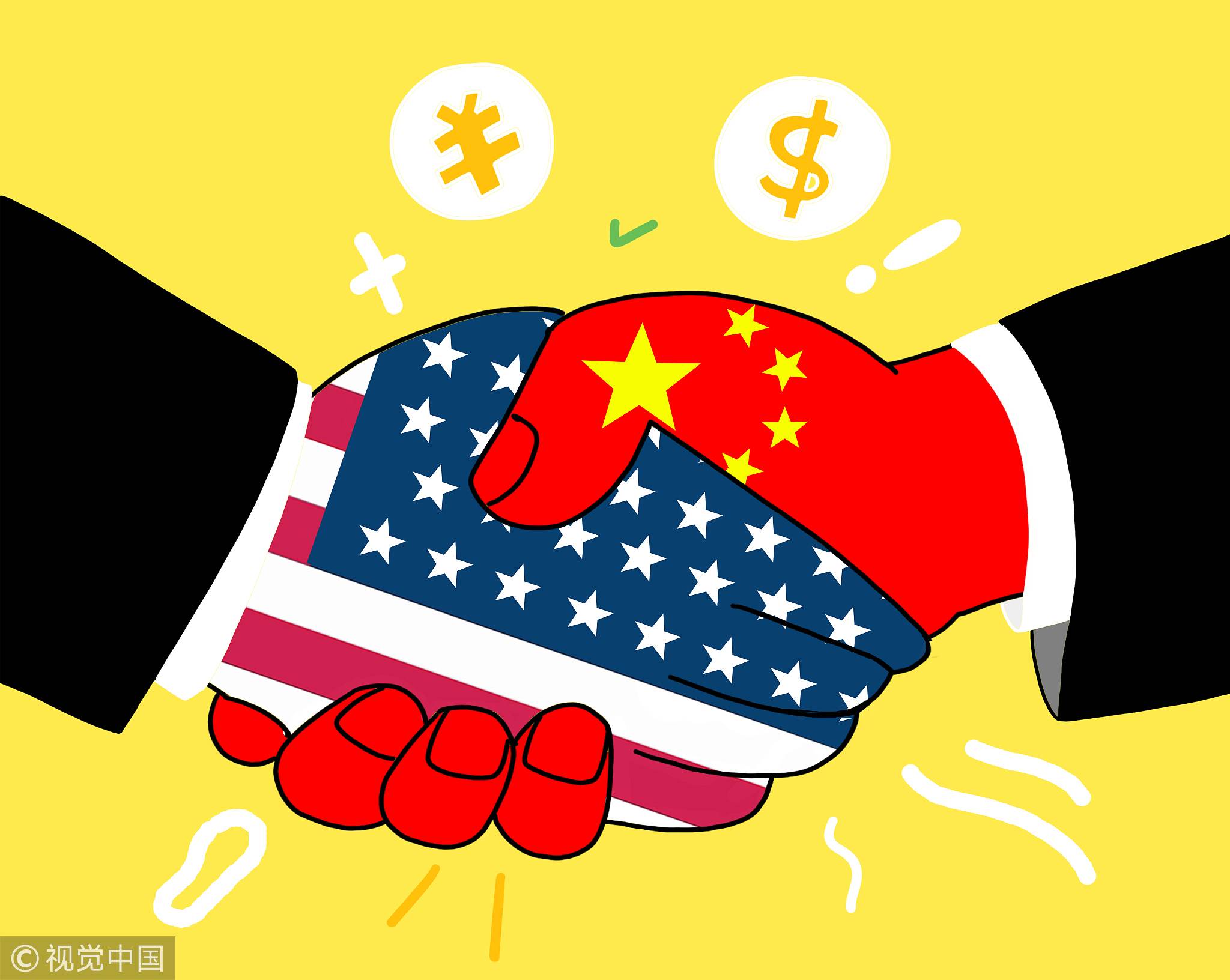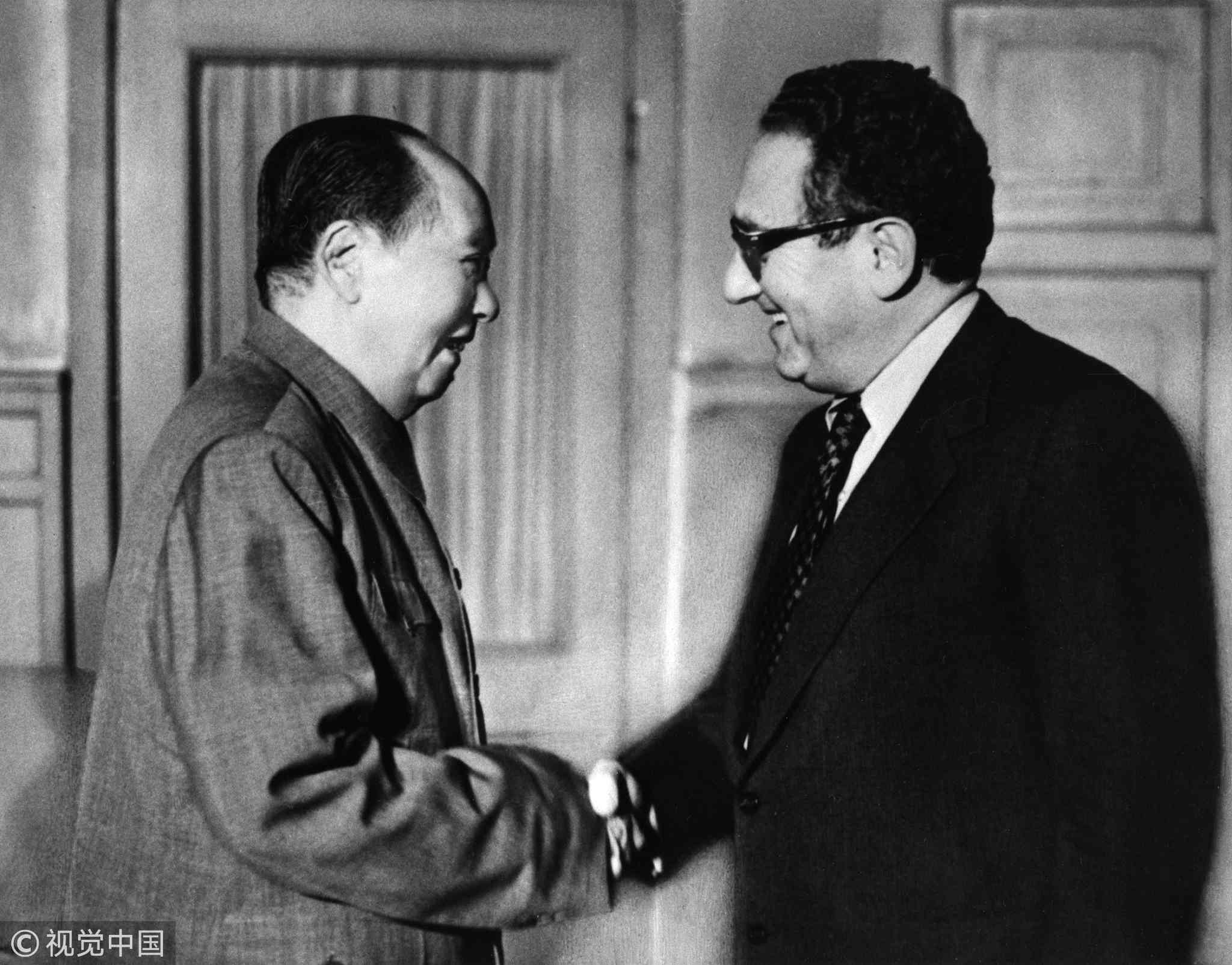
China
20:34, 25-Nov-2018
Oscar winner: U.S.-China discord boils down to information deficit
Updated
19:34, 28-Nov-2018
By Wang Xiaonan
02:58

When the world's two heavy hitters are mired in tension – putting their engagement policy that has been refined over the past four decades at risk – a new documentary by two-time Oscar-winning director Malcolm Clarke couldn't come timelier.
"Better Angels," the first feature documentary exploring Sino-U.S. ties, gathers observations from iconic thought leaders, including former U.S. secretary of state Henry Kissinger, former Australian prime minister Kevin Rudd, Chinese economist Cheng Siwei, former chief executive of Hong Kong Tung Chee-hwa, retired major general Qiao Liang, interlaced with portraits of ordinary Chinese in the U.S. and ordinary Americans in China against a background of an ascending, complicated China. They are the "better angels" reaching out across half a world away to build a bridge of understanding.
Shot across four continents over five years, the film, which gets its name from the quote "the better angels of our nature" by Abraham Lincoln in his first inaugural speech in 1861, paints a compelling story of a China that is often overlooked by Western media. It tackles tough issues, such as the underlying causes of the tensions between Beijing and Washington, and what ordinary Chinese and Americans are doing to prevent ties from unraveling. CGTN's Wang Xiaonan interviewed Malcolm Clarke (Clarke) after the limited release of the film in Beijing.

Poster of documentary "Better Angels" /ARTeFACT Entertainment
Poster of documentary "Better Angels" /ARTeFACT Entertainment
CGTN: What got you interested in making this documentary five years ago, even though China-U.S. tensions were not as high as they are now?
Clarke: It was very clear that the relationship between China and America was not going well [back then]. There are many people in America who were accusing China of job stealing, but actually the jobs were sent to China by American manufacturers to make money. But the message was still China is the enemy, so we decided that there needed to be a different narrative to tell principally the American public there was something more complicated and nuanced happening in China, and we want to address that.
CGTN: What impact do you expect the film to have? Do you think it will be revelatory to politicians of both countries?
Clarke: I think the impact of the film will definitely be felt in both countries, amongst the people, amongst the students, maybe amongst the business community, amongst the politicians, the rulers. I hope they hear it and I hope they understand making the other country the enemy is in no one's interest. James Baker (former U.S. secretary of state) in our film said, “We are not yet enemies.” Obviously the people who matter most in terms of determining our destiny are the politicians. If the politicians read about the film and that it's having an influence, maybe they will listen. And if they will, maybe they will change the way they behave.
CGTN: What surprised you the most over the course of shooting the documentary?
Clarke: I think the thing that was most surprising to me was finding out how little America and Americans understood China. But the Chinese understand much more about America than vice versa. And yet when you think about it, it's kind of natural because America has, for a hundred years, been telling American stories, extremely successfully. Movies, books, television, journalism – all kinds of ways of telling stories – pop music, pop culture – everybody in the world understands a little bit about America.
But Americans do not have a huge amount of intellectual curiosity about the rest of the world. Many Americans travel and many Americans are very sophisticated, but a much larger American proportion really does not understand the rest of the world terribly well. That's part of the problem.

China-U.S. relations /VCG Photo
China-U.S. relations /VCG Photo
CGTN: So that boils down to what you just now described as information deficit instead of trust deficit that has painted the bleak picture of the bilateral ties. Could you elaborate?
Clarke: I think Americans are used to hearing that they are special, that their belief in American exceptionalism is profound. WWI and WWII would not have gone the way they went without America. America has contributed a huge amount to the wellbeing of the world and the wellbeing of individual nations. But I think in the process, America has lost track of the fact that it needs, perhaps, to be a little more humble. If America learned a little humility, I think it will get along with its neighbors better.
Americans have sensed that China is an Asian mystery. But as Zhou Enlai (the first premier of the People's Republic of China) told Henry Kissinger, “We are not that mysterious. Just come to know us.” That's what I do.
During the time I've been here, I've learned about China, and actually the most enigmatic thing about China is how similar the Chinese are to Americans – the entrepreneurial spirit, the willingness to take risks, to push the boundaries, to push the frontiers – that's very American, and it's become very Chinese.
As an Englishman, I look at these two countries and wonder why they argue. They are so similar in so many ways. And that gives me hope for the future.

Chairman Mao Zedong of the People's Republic of China meets U.S. Secretary of State Henry Kissinger in Beijing, China, on November 12, 1973. /VCG Photo
Chairman Mao Zedong of the People's Republic of China meets U.S. Secretary of State Henry Kissinger in Beijing, China, on November 12, 1973. /VCG Photo
CGTN: What do you think of the trade dispute and the clash over Washington's intellectual property (IP) claims against Beijing?
Clarke: Think of the beginning of the 20th century. Who was the biggest IP thief? America, stealing from Europe, because IP theft turns to be a stage in a country's development. When you have secret intellectual property to protect, then you appreciate copyright law, you appreciate that protections of intellectual property are important.
The problem with the American press is that they are obsessed with four or five criticisms about China that need addressing indisputably, but they don't look further. They never look at the Chinese people, the Chinese achievement and the prices China has paid for its economic miracle. They need a nuanced, three-dimensional study of China.
CGTN: Will you make more films about China?
Clarke: For the next two or three years, I'll be in China and trying to find more stories, because China is very underreported, and it's very underrepresented in terms of world cinema. And there are so many wonderful stories the rest of the world has never heard. And I think one filmmaker cannot do very much, but if we can tell two or three great stories and take them out to the world community, I think that will help, because as William Shakespeare wrote, a picture is worth a thousand words. And a movie is worth much more than that.
(Videographer: Qi Jianqiang; Video editor: Liu Lian)

SITEMAP
Copyright © 2018 CGTN. Beijing ICP prepared NO.16065310-3
Copyright © 2018 CGTN. Beijing ICP prepared NO.16065310-3